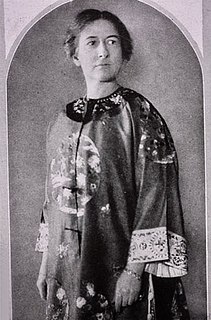A Quote by Marcus Aurelius
No state sorrier than that of the man who keeps up a continual round, and pries into "the secrets of the nether world," as saith the poet, and is curious in conjecture of what is in his
neighbour's heart.
Related Quotes
The Scripture saith, The fool hath said in his heart, there is no God; it is not said, The fool hath thought in his heart; so as he rather saith it, by rote to himself, as that he would have, than that he can thoroughly believe it, or be persuaded of it....It appeareth in nothing more, that atheism is rather in the lip, than in the heart of man.
A true poet is more than just a man who can write a poem with a pen. A true poet writes poetry with his very life. A true poet doesn't use poetic devices to con the heart of a woman but uses the beauty of all that is poetic to serve, cherish, and express love to the heart of a woman. Just as a true warrior is not a conqueror of femininity but a protector of femininity, a true poet is not just a wooer of a woman's heart but one who knows how to nurture and plant love in a woman's heart. Simply put, a true poet is a man who knows how to be intimate with a lover - first and foremost with Christ.
The wisdom of God exceeds that of the wisest man, more than his wisdom exceeds that of a child. If a child were to conjecture how an army is to be formed in the day of battle--how a city is to be fortified, or a state governed--what chance has he to guess right? As little chance has the wisest man when he pretends to conjecture how the planets move in their courses, how the sea ebbs and flows, and how our minds act upon our bodies.
Miserable is the man who loves a woman and takes her for his wife, pouring at her feet the sweat of his skin and the blood of his body and the life of his heart, and placing her in the hands of the fruit of his toil and the revenue of his diligence; for when he slowly wakes up, he finds that the heart that he endeavored to buy is given away freely and in sincerity to another man for the enjoyment of its hidden secrets and deepest love.
If a pot can multiply. One day Nasrudin lent his cooking pots to a neighbour, who was giving a feast. The neighbour returned them, together with one extra one – a very tiny pot. 'What is this?' asked Nasrudin. 'According to law, I have given you the offspring of your property which was born when the pots were in my care,' said the joker. Shortly afterwards Nasrudin borrowed his neighbour's pots, but did not return them. The man came round to get them back. 'Alas!' said Nasrudin, 'they are dead. We have established, have we not, that pots are mortal?'.
We're all so clogged with dead ideas passed from generation to generation that even the best of us don't know the way out We invented the Revolution but we don't know how to run it Look everyone wants to keep something from the past a souvenir of the old regime This man decides to keep a painting This one keeps his mistress He [ pointing ] keeps his garden He [ pointing ] keeps his estate He keeps his country house He keeps his factories This man couldn't part with his shipyards This one kept his army and that one keeps his king
The poet's, the writer's, duty is to write about these things. It is his privilege to help man endure by lifting his heart, by reminding him of the courage and honor and hope and pride and compassion and pity and sacrifice which have been the glory of his past. The poet's voice need not merely be the record of man, it can be one of the props, the pillars to help him endure and prevail.
There is a religious principle: Love thy neighbour as thyself. But it's also an economic asset. If you've got a neighbour, you've got help, and this implies another limit. If you want to have neighbours, you can't have a limitless growth economy. You have to prefer to have a neighbour rather than to own your neighbour farm.
The Enemy wants to bring the man to a state of mind in which he could design the best cathedral in the world, and know it to be the best, and rejoice in the fact, without being any more (or less) or otherwise glad at having done it than he would be if it had been done by another. The Enemy wants him, in the end, to be so free from any bias in his own favour that he can rejoice in his own talents as frankly and gratefully as in his neighbour's talents--or in a sunrise, an elephant, or a waterfall.
One more royal trait properly belongs to the poet. I mean his cheerfulness, without which no man can be a poet,--for beauty is his aim. He loves virtue, not for its obligation, but for its grace; he delights in the world, in man, in woman, for the lovely light that sparkles from them. Beauty, the spirit of joy and hilarity, he sheds over the universe.









































